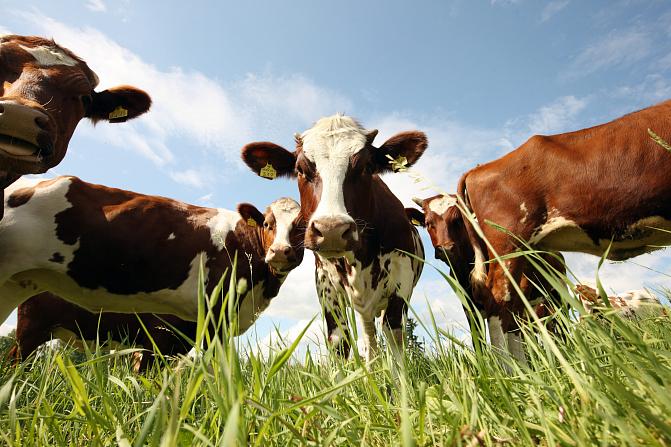Outgoing Commissioner for Health and Food Safety, Stella Kyriakides, deserves our gratitude for her engagement for better animal welfare during her term. We hope her successor will recognize the critical importance of animal protection.
When a new slate of European Commissioners-designates has been approved, the spotlight invariably shifts to the introduction of the incoming Commissioners, while their predecessors often depart without much attention. Yet, there is much to be gained by reflecting on the decisions and efforts of the outgoing administration.
In some instances, certain Commissioners deserve positive recognition for their dedication to building a better world—in this case, advocating for the protection of animals. Such commendation should go to the outgoing Commissioner for Health and Food Safety, Stella Kyriakides, who spearheaded ambitious reform efforts to revamp the EU’s highly outdated animal welfare rules.
Disappointment with the Farm-to-Fork Strategy
Commissioner Kyriakides’ term marked a turning point for animal welfare within the EU, with the Farm-to-Fork Strategy launched in May 2020. After decades of neglect, animal welfare finally took center stage in EU policymaking, bringing much-needed hope to the movement.
In the Farm to Fork strategy, the Commission made bold commitments to revise animal welfare legislation and introduce new laws to promote sustainable food systems, including plant-rich diets under the proposed Framework Law for Sustainable Food Systems. However, while Kyriakides was working to implement the Strategy, the Commission ultimately changed course as a result of intense industry pressure.
There is now a clear contrast between how Kyriakides began her term in late 2019 versus the agenda announced by the new Commission. While there are signs that commitments to ending caged farming might remain intact, political developments have already led many animal advocates to approach the new term with caution and even some trepidation.
For instance, the Framework Law for Sustainable Food Systems—a key initiative of the Farm-to-Fork Strategy—was shelved last year and officially scrapped earlier this month. Similarly, the EU deforestation law, a landmark achievement of the last term, has just been watered down, signaling a worrisome trend for environmental and animal welfare priorities
… But Commendable Record on Animal Welfare
While the Commission’s decision to change course on the Farm-to-Fork Strategy overshadowed the latter part of the past term, there have been some notable victories for animals, thanks in large part to Stella Kyriakides’ efforts. Among these was the adoption of a long-overdue proposal for new EU regulations on animal transport.
The need for reform in this area was dire: overcrowded trucks with little to no ventilation, long hours without food, water, or rest, and exposure to extreme temperatures. Investigations repeatedly documented horrific suffering due to transport conditions, so this reform could help mitigate some of the worst abuses to which animals are subjected.
She also helped deliver a proposal for new legislation on the welfare and traceability of cats and dogs, which was a welcome initiative that was not foreseen in the agenda. With standards in the treatment of cats and dogs varying across the EU, with a great deal of evidence regarding suboptimal living conditions and illegal trade, this legislation represents a significant step forward for companion animals.
Thanks to this proposed legislation, which appears likely to be adopted in the upcoming term, the EU will be able to ensure uniform minimum standards for the housing, care, and handling of cats and dogs, applicable across all Member States. Stella Kyriakides has demonstrated a genuine commitment to her ideals, and we commend her for her unwavering efforts to advance animal welfare, often under challenging circumstances.
New Commissioner, New Challenges
Following his confirmation by the European Parliament, Olivér Várhelyi will succeed Commissioner Kyriakides. Currently serving as Commissioner for Neighborhood and Enlargement, Olivér Várhelyi was recently questioned in his confirmation hearing, where we were able to learn more about his approach and priorities. He will be the first dedicated Commissioner for Animal Welfare.
One encouraging moment came when he acknowledged that cages were “obsolete.” However, this encouraging statement was tempered by his statement that he would like to “sit down with everyone” to phase out the use of cages. While this might appear constructive, it risks playing into the hands of those who wish to delay progress.
The necessary groundwork to phase out cages has already been completed, including public consultations, stakeholder meetings, impact assessments, and feasibility studies. The Commission’s Regulatory Scrutiny Board, the EU’s quality control body, has also confirmed that the groundwork for the law is complete.
Furthermore, nearly 1.4 million EU citizens have expressed their support for ending this cruel practice via the End the Cage Age European Citizens’ Initiative. Stella Kyriakides played a pivotal role for the Commission’s commitment to the End the Cage Age ECI back in June 2021. Rehashing these processes would only buy time for industry opponents of this much needed reform.
Another notable position the new Commissioner expressed during his confirmation hearing was his intention to prioritize the enforcement of existing EU rules. For animal advocates, this is a welcome commitment. While the EU does have some forward-thinking animal welfare laws, their impact is often undermined by insufficient enforcement and lax oversight.
The recent subsidy fraud scandal in Croatia underscores this issue. Nine people were arrested for defrauding the EU of €9 million, funds dedicated to improving the welfare of pigs. Additionally, the transport regulation is legally required to apply beyond EU borders, ensuring animal welfare during long-distance trade to third countries.
Need to strengthen enforcement
However, overwhelming evidence indicates significant enforcement failures. Animals are frequently subjected to prolonged periods without water, food, or rest, as well as extreme heat or cold, during journeys that far exceed the EU's legal limits. Another enforcement failure concerns the treatment of animals at slaughter where ineffective and painful stunning methods are used for economic reasons.
Lax enforcement and oversight like the instances mentioned above not only inflict horrible suffering on animals, but damage the credibility of the EU. In the coming term, we aim to hold Commissioner Várhelyi to his promise regarding enforcement, and as animal advocates, we will continue to press the Commission to deliver the promised revision that was announced in the Farm to Fork Strategy.
We urge Commissioner Várhelyi to follow the admirable precedent set by Commissioner Kyriakides by recognizing the value and importance of animal protection. Her leadership has demonstrated how prioritizing animal welfare aligns not only with ethical imperatives but also with the expectations of the majority of EU citizens.


